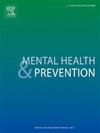应对是有社会情绪困难风险的儿童应对学校压力的一个复原力因素
IF 2.4
Q2 Medicine
引用次数: 0
摘要
目的学校环境中的社会和学业压力源会对儿童的社会情感发展产生不利影响。尤其是患有阅读障碍等学习障碍的儿童,由于学校的压力,他们面临着社会情绪适应能力差的风险。虽然有效的应对可能有助于通过培养个人的弹性来处理这些压力源,但很少有人知道哪些应对策略对学校福利的各个方面产生了显著的有利影响。本研究考察了问题关注、情绪调节和不利应对等不同应对策略对小学生社会情绪发展的影响。方法样本包括52名在校学生,来自学校和特许学习机构,包括33名被诊断为阅读障碍的儿童和19名表现良好的同龄人。参与者主要在小学结束时(M = 9.59年,SD = 0.48),在一个学年中进行了两次评估。采用应对策略和社会情绪结果问卷收集数据。本研究采用多元回归分析,探讨个体应对策略如何解释社会情绪幸福感的个体间差异。结果以问题为中心的应对是学校环境中幸福感的主要预测因子(β值范围从0.27到0.51),而情绪调节(β值= 0.24)和不利的应对策略(β值= - 0.26 /- 0.27)在幸福感的较少方面具有解释价值。结论以问题为中心的应对方法在促进学童社会情绪健康和心理弹性方面最有效。这突出了在教育干预中培养特别是解决问题能力的重要性。本文章由计算机程序翻译,如有差异,请以英文原文为准。
Coping as a factor of resilience for school-based stress in children at risk for socio-emotional difficulties
Objective
Social and academic stressors within the school environment can exert adverse effects on the socio-emotional development of children. Especially children with a learning disorder like dyslexia are facing the risk of poor socio-emotional adjustment due to school-based stress. Although effective coping might help dealing with these stressors by fostering personal resilience, little is known about which coping strategies exert a notably favourable influence on the diverse facets of school-based well-being. The present study thus examined the impact of various coping strategies—namely problem-focused, emotion-regulating, and unfavourable coping—on the socio-emotional development of elementary schoolchildren.
Methods
The sample consisted of 52 schoolchildren recruited from schools and licensed learning institutes, including 33 children diagnosed with dyslexia and 19 typically achieving peers. Participants, primarily at the end of elementary school (M = 9.59 years, SD = 0.48), were assessed two times across one academic year. Data were collected using questionnaires of coping strategies and socio-emotional outcomes. Multiple regression analyses were conducted to determine how interindividual differences in socio-emotional well-being can be explained by individual coping strategies.
Results
Problem-focused coping was the predominant predictor of well-being within the school context (β ranging from .27 to .51), whereas emotion-regulating (β = .24) and unfavourable coping strategies (β = -.26/-.27) were of explanatory value for fewer aspects of well-being.
Conclusion
A problem-focused approach in coping seems to be most effective in promoting socio-emotional well-being and resilience among schoolchildren. This highlights the importance of fostering especially problem-solving skills within educational interventions.
求助全文
通过发布文献求助,成功后即可免费获取论文全文。
去求助
来源期刊

Mental Health and Prevention
Medicine-Psychiatry and Mental Health
CiteScore
2.10
自引率
0.00%
发文量
22
审稿时长
24 days
 求助内容:
求助内容: 应助结果提醒方式:
应助结果提醒方式:


